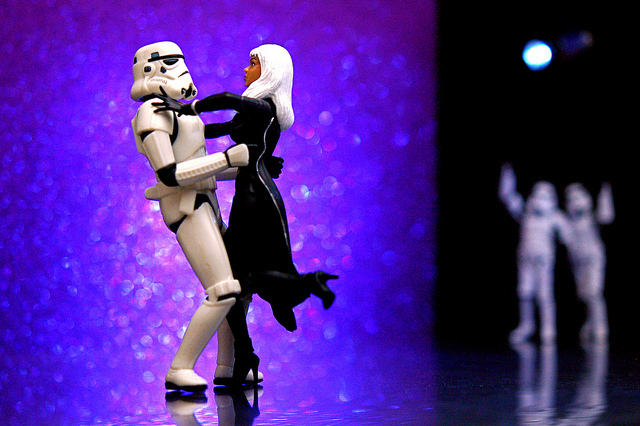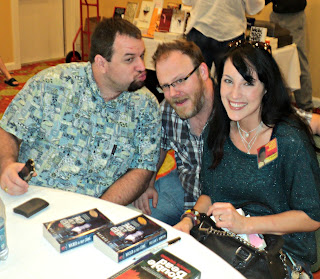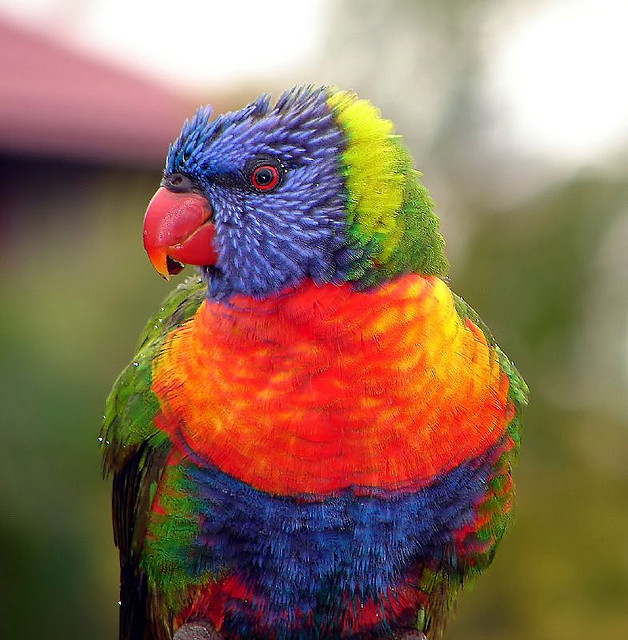
I love it when Chuck Wendig talks about writing.
Recently Chuck gave an interview to 52 Reviews in which he mused about how to find your voice and what talent is.
How To Find Your Voice
Chuck Wendig says:
Every author decides to go on a grand adventure one day, and that grand adventure is to find her voice. She leaves the comfort of her own wordsmithy and she traipses through many fictional worlds written by many writers and along the way she pokes through their writings to see if her voice is in there somewhere. She takes what she reads and she mimics their voices, taking little pieces of other authors with her in her mind and on the page.Profound.
Is her voice cynical? Optimistic? Short and curt, or long and breezy? She doesn’t know and so she reads and she writes and she lives life in an effort to find out.
This adventure takes as long as it takes, but one day the author tires of it and she comes home, empty-handed, still uncertain what her voice looks like or sounds like.
And there, at home, she discovers her voice is waiting. In fact, it’s been there all along.
Your voice is how you write when you’re not trying to find your voice. Your voice is the way you write, the way you talk. Your voice is who you are, what you believe, what themes you knowingly and unknowingly embrace.
Your voice is you.
Search for it and you won’t find it. Stop looking and it’ll find you.
I think that's true for many areas of human endeavour, you won't find what you're looking for 'out there,' (wherever 'out there' is) only when you look within. (By the way, Chuck also talked about this on his blog.)
What Talent Is
Another quotable quote:
52 Reviews: Speaking of 'simply writing' do you prescribe to the notion that success as a writer is more a measure of effort and dedication than actual talent? Creativity, in and of itself, seems to be pretty easy to come by while the tenacity to commit to the act of actually creating seems to be much more scarce.
Wendig: Talent is a function of excess desire. You really, really want something bad enough, you tend to manifest a "talent" for it. While I'm sure there's some argument to be made for the expression of genetics, I think mostly it's just -- if you really like architecture and have the desire to create architecture, you're probably going to manifest the "talent" as an architect.
Dedication and effort then turn that desire and talent into craft and creation. At least, in a perfect world
Chuck's Books
Since he's so nice in giving us these tangy nuggets of wisdom, I want to mention that Chuck Wendig has 4 books coming out in the next couple of months. Here's Chuck's description:
First up: Gods & Monsters: Unclean Spirits. The gods fell to Earth. One man wants revenge on them for taking his family away from him. It involves various divine wangs and vaginas. No, really.Anyone who wants to read the first chapter of Gods & Monsters: Unclean Spirits, it's up at io9. Also, information about where Chuck's books are on sale, and other good stuff, is available over at Terribleminds.
Next: The Blue Blazes. Which we have in part already talked about but hey, I'll entice with: mystical drugs! goblins! roller derby girl gangs! the criminal underworld! the mythic underworld! subterranean zombie town! charcuterie! family betrayal!
Then: Under the Empyrean Sky, which is my young adult novel in a sunny dustbowl cornpunk future where a scrappy scavenger named Cael finds a secret forbidden garden in a world where their floating Empyrean overlords only allow them to grow a bloodthirsty variant of corn. It's got young love and adventure and piss-blizzards and motorvators and an agricultural pro-farmer pro-food message nestled in all the trappings. John Hornor Jacobs called it Of Mice and Men meets Star Wars, which I quite like.
Finally! Beyond Dinocalypse, book two of the Spirit of the Century trilogy. Pulp heroes. Two-fisted jet-pack action. An apocalypse of psychic hive-mind dinosaurs. PROFESSORIAL APES IN KILTS.
Other articles you might like:
- Creating The Perfect Sleuth- How Many Books Would You Have To Write To Quit Your Job?
- Advice For New Writers
Photo credit: "Untitled" by Tucker Sherman under Creative Commons Attribution 2.0.











